Interview: Artistic Director YOSHIDA Miyako talks about the 2023/2024 season
-
The new season opens with Don Quixote:
exciting casting promises to showcase the growth of the dancers
― The new season starts with the glamorous production of Don Quixote.
Don Quixote was well received last time, and it holds special memories for me as it was the first ballet I directed after taking over. This time Alexei Fadeyechev is coming to coach us, and I expect it to be an even more dynamic, dazzling performance. I am excited to see how the dancers have developed over the past few years and to see the results of their growth. Some dancers have shown significant improvement and there are many challenging roles that I believe will give them the chance to shine.

YOSHIDA Miyako
DANCE to the Future: Young NBJ GALA will take a different approach by featuring a collection of pas de deux performed by young dancers and Duende, a piece by Nacho Duato. It takes time for young dancers to be able to perform leading roles, but I hope that exposing them to classical pas de deux will help them grow. I also hope it will give our audiences the opportunity to discover their next favourite dancers. I remember from my experience at the Royal Ballet, receiving heart-warming stories from fans who had watched me since I was a teenager, and I would be delighted if the New National Theatre, Tokyo (NNTT) could have a similar lasting connection with audiences, as our stars continue to grow.
This time, we will be revisiting three works originally created for previous DANCE to the Fututre series. They were chosen by the online public vote for "Yoshida Miyako's Selection" during the pandemic, which was unfortunately cancelled. Many people sent requests and comments during the voting process, and I would like to thank them all. I passed these messages on to the choreographers, and they were also deeply moved.
It has been a while since we last performed Duende. Rehearsing this intense piece will certainly leave the dancers with sore muscles, but such challenges are sometimes necessary. Casting for this piece will also focus on younger talent.
Last season began with a new production of Giselle, and there were several new challenges that invigorated the theatre and helped the dancers grow. Such exciting stimulation is much needed, and I want to continue to proactively add challenging works to our repertoire alongside the classics.
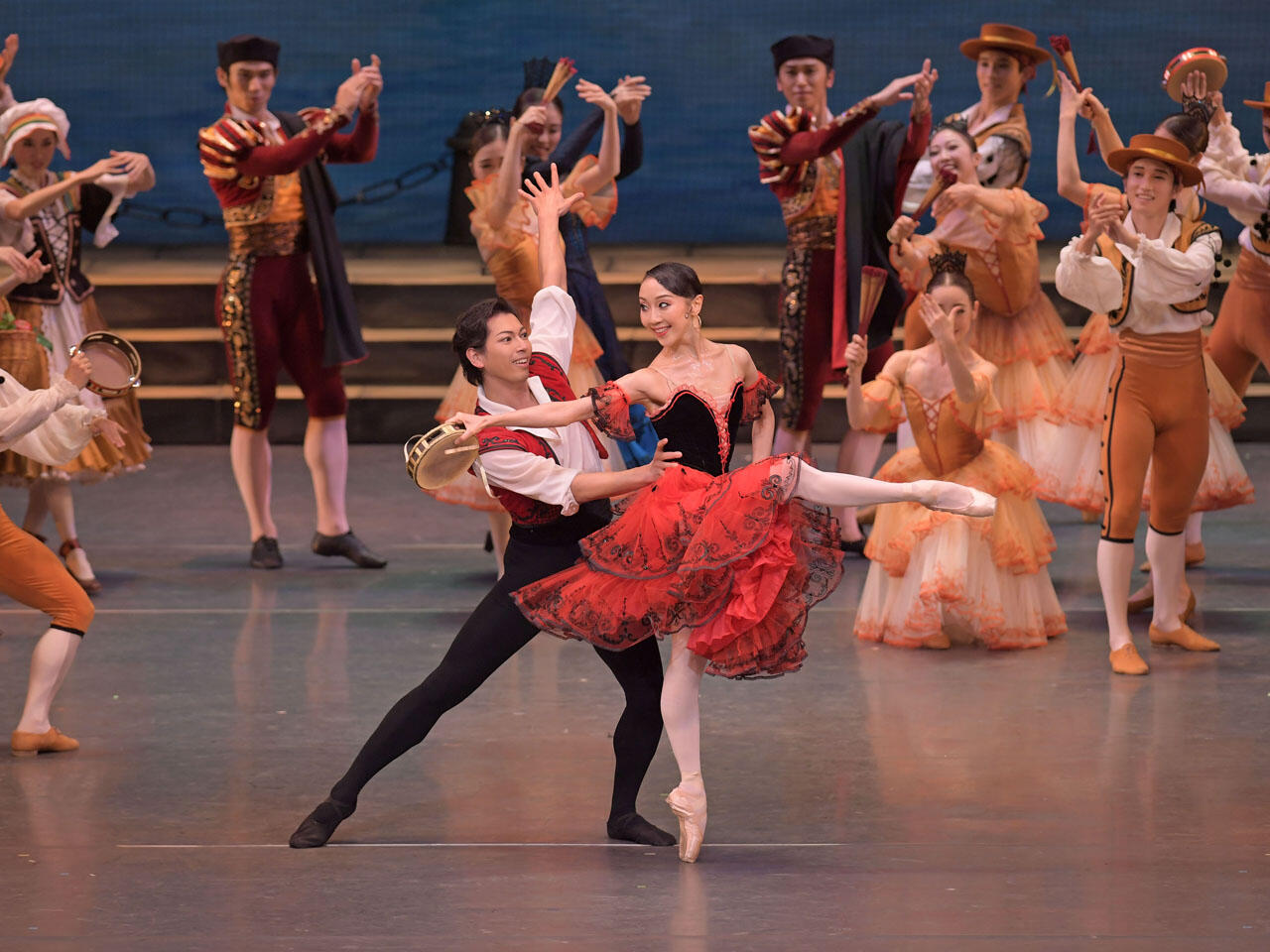
Don Quixote
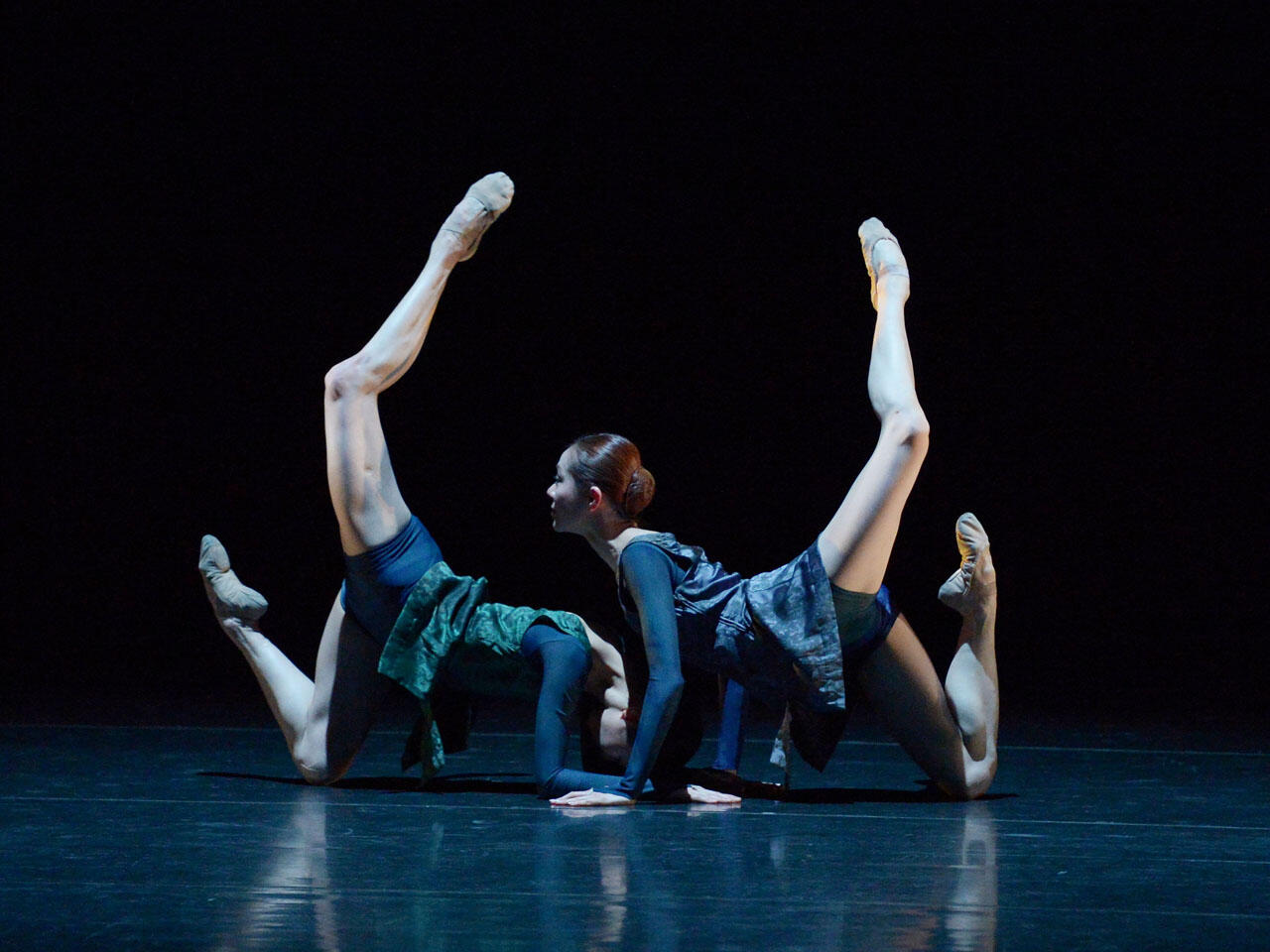
Duende
―The Nutcracker and the Mouse King has increased its number of performances and extended its run. Spending the Christmas holidays at the theatre has become a new lifestyle for many.
The Christmas and New Year shows have been enjoyed by many and we even had visitors from overseas during the last run. As the theatre experience itself evolves, with more dining options and so on, I think families can enjoy their time at the theatre even more. The Nutcracker and the Mouse King during the winter holidays is very important to us because it nurtures the audience. For some, The Nutcracker is their first experience of ballet, and they often come back for other ballets. The number of performances is increasing, and with the completion of the new studio, we have enough rehearsal space to allow us to create different combinations of casts. We think the audience will enjoy seeing the differences between the casts.
Tales of Hoffmann will be directed by our former artistic director, Ohara Noriko. Since some of the dancers will be reprising their roles from the previous run, I believe we can express a deeper drama this time. I also felt that the dancers' theatrical expression had developed through the recent performance of The Tragedy of Macbeth, so I have high expectations for the dramatic performance of Tales of Hoffmann.
―Last season began with Giselle, where you put a lot of emphasis on acting. The success of The Tragedy of Macbeth is a testament to the dancers' improved theatrical expression.
I could feel that the performance was becoming more and more powerful. It was also great to see that each cast brought a completely different atmosphere to the piece. However, there are still some younger dancers who struggle with small everyday gestures like greeting kisses, hugs and the like, which need to be done in a more natural way.
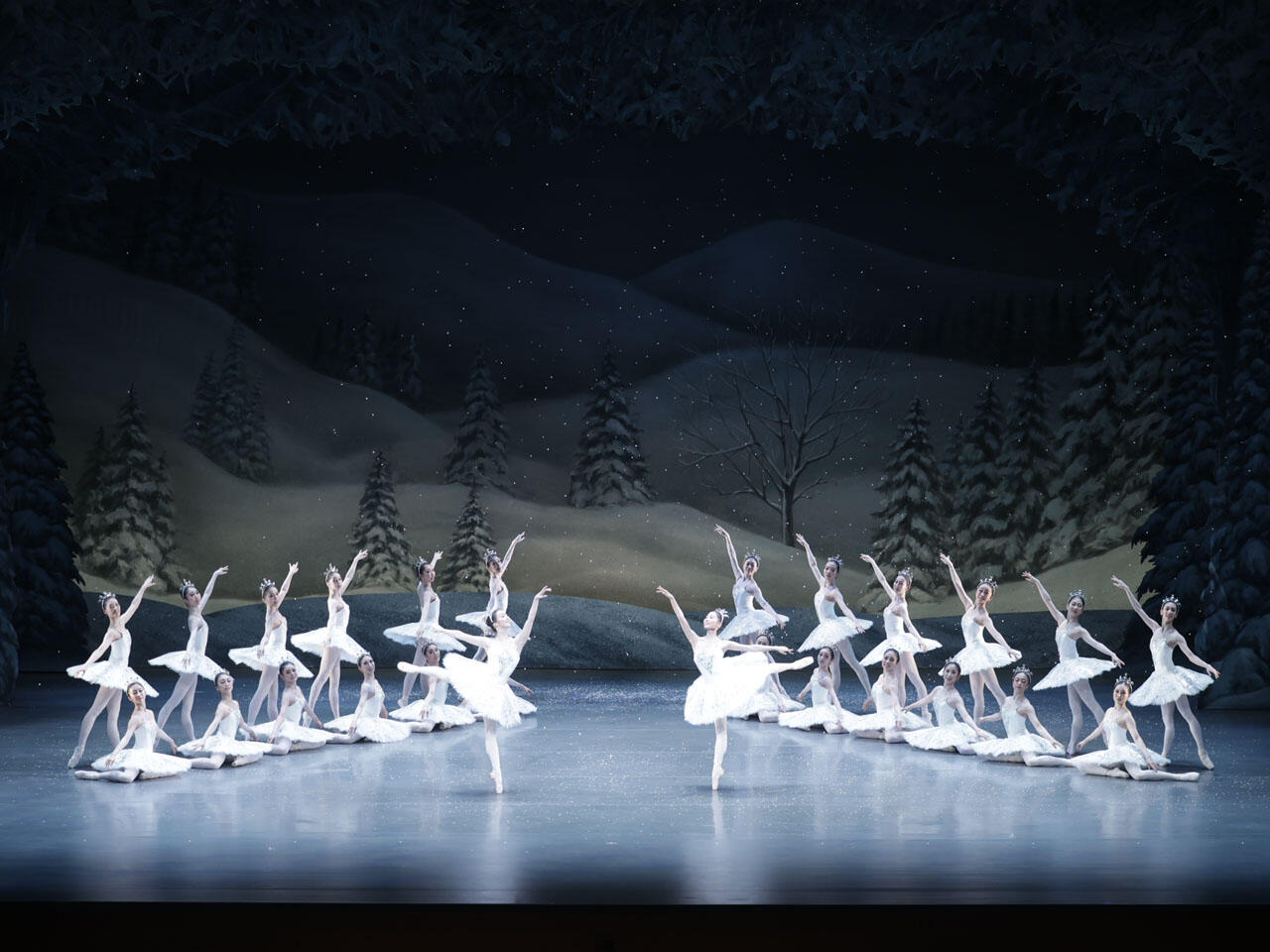
The Nutcracker and the Mouse King
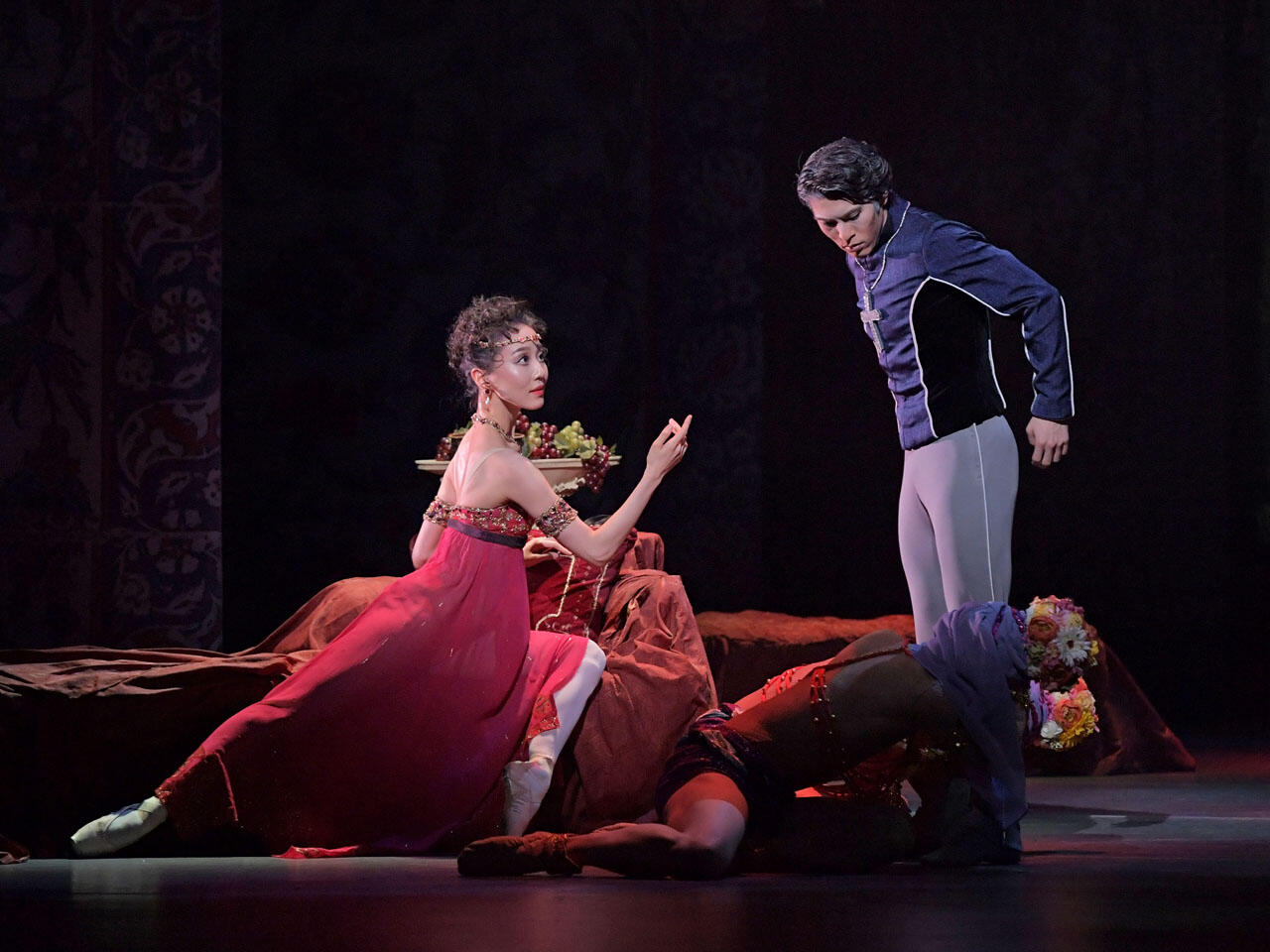
Tales of hoffmann
-
The importance of revisiting classical ballets
to help dancers grow
― La Bayadère is a classical ballet with a powerful drama.
I wanted to do Maki Asami's version because it is simply fantastic. When we last performed Raymonda, Maki-sensei made some changes to the performance, and this time I hope to preserve the essence of classical ballet while being aware of the cultural sensitivity required by today's international standards regarding religious and racial portrayals. Our new season will include some full-length classical works, as the pandemic forced us to perform The Sleeping Beauty at short notice, reminding me of how important classical ballet is to our company. I remember Sylvie Guillem being asked in an interview why she still danced in The Sleeping Beauty, given her focus on contemporary works. She replied, "For my health". Classical ballet requires going back to basics, learning etiquette, and strengthening the body. Through these treasures of the company, I hope to lead the dancers to further improvement.
―Aladdin, the ballet that was originally created for the NNTT and has grown with the company, returns for the new season.
I am delighted to have Sir David Bintley with us. When we worked on A Million Kisses to my Skin, I felt that what dancers gain from being directly guided by a choreographer is significant. It is special for the dancers to be able to work with him again, and the production is fun, which will undoubtedly liven up the theatre. I feel that the ballet grows every time we do it. The more often the dancers perform it, the more confident they become and the more attention they pay to the finer details. This kind of accumulated experience is essential for their growth as dancers.
We are revisiting Moriyama Kaiji's NINJA, a dance piece that both children and adults can enjoy. I remember the last time when children laughed and had a great time watching it. Although it is a performance for children, Moriyama's work incorporates the depth of Japanese culture and respect for nature, which can also resonate with adults who were once children.
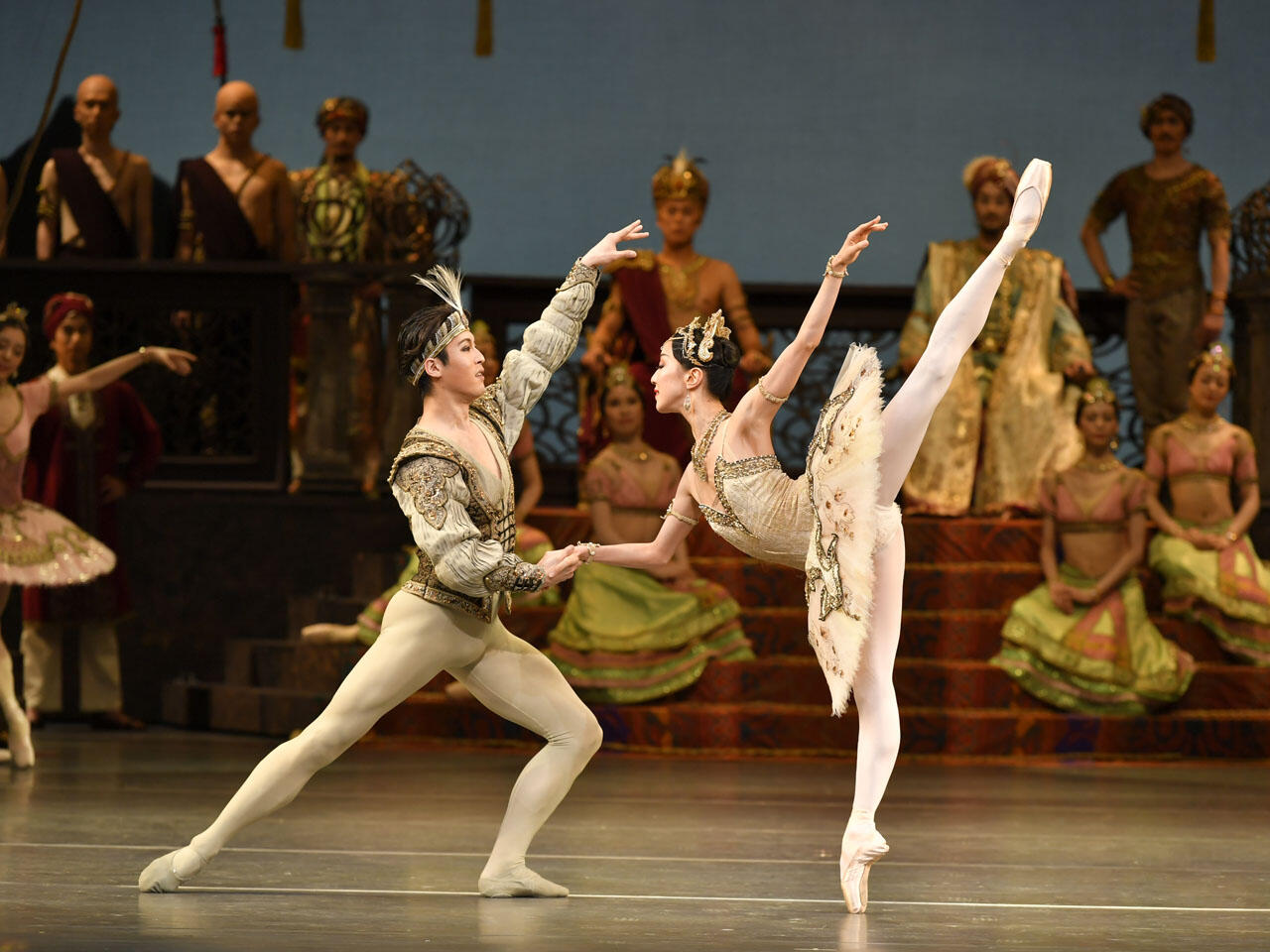
La Bayadère
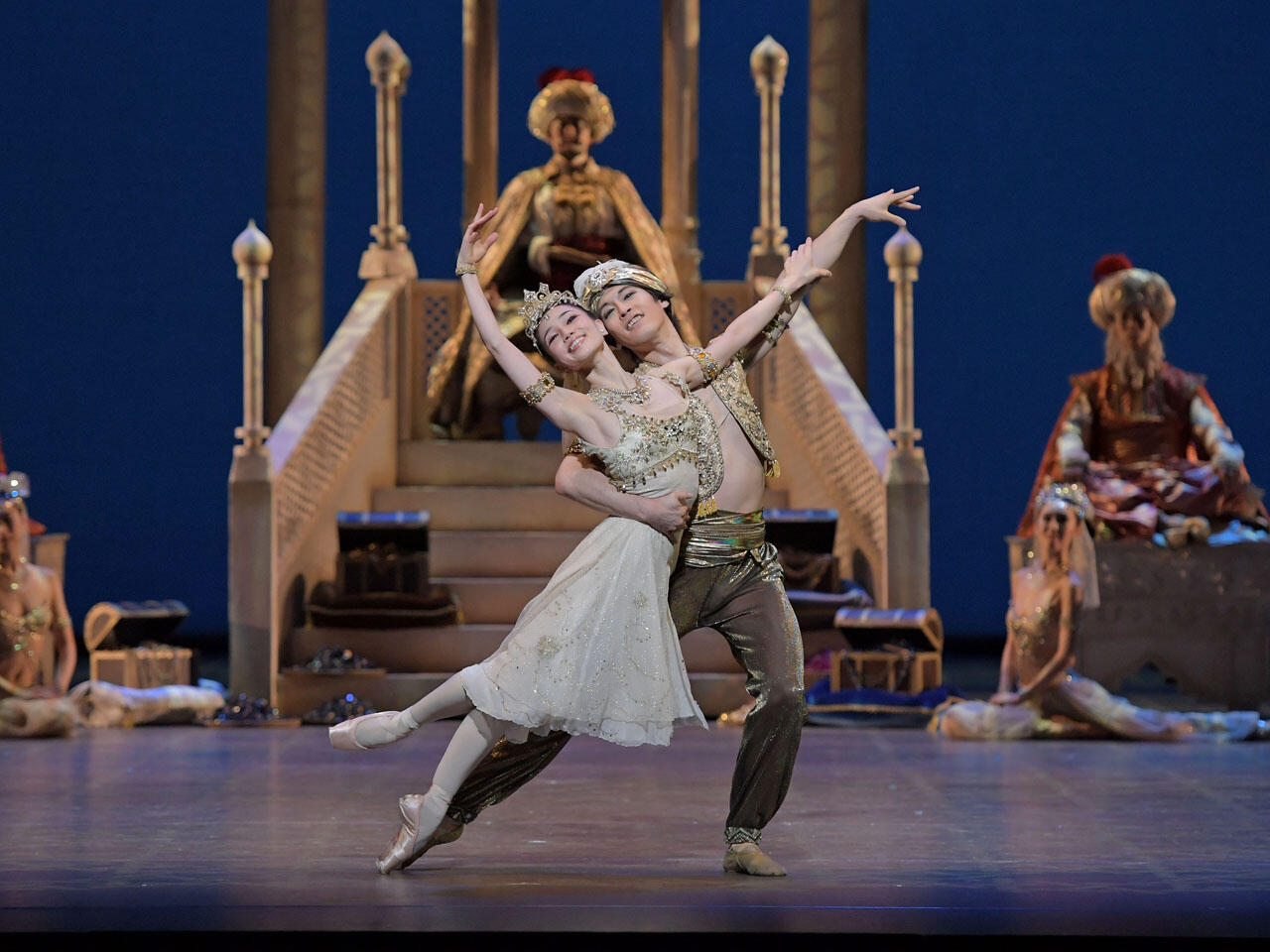
Aladdin
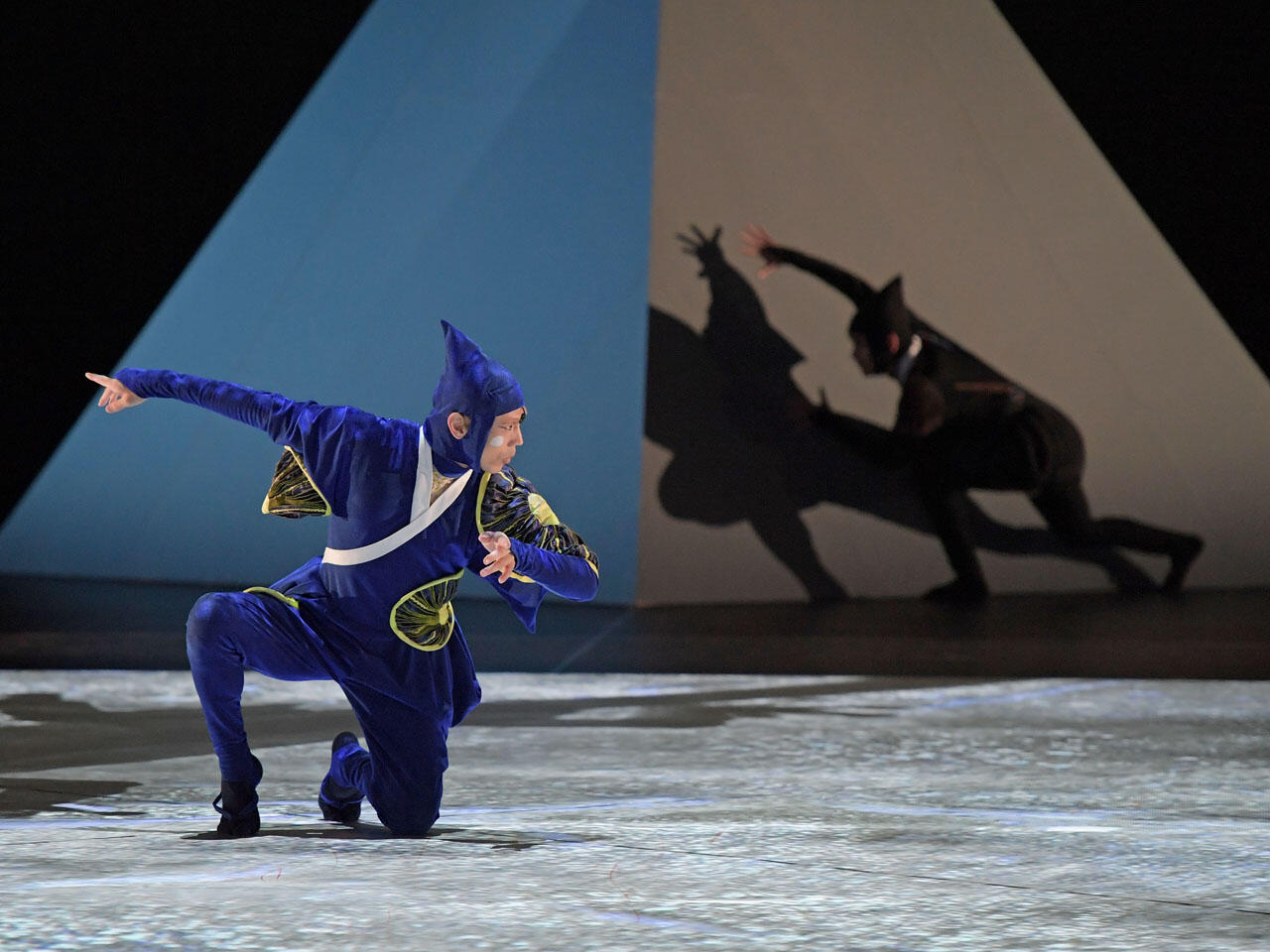
Moriyama Kaiji "NINJA"
―Earlier, you mentioned the challenge of young dancers. Could you please tell us what aspects you take into consideration when selecting young dancers for leading roles, such as Artist Yoshida Akari as Odette/Odile in Swan Lake in June?
This season, when Akari Yoshida has been given a few opportunities, she has handled them calmly and delivered well. Needless to say, the quality of her dancing and her proportions also suit Swan Lake. Taking these factors into account, I made an overall judgement.
As I watch the dancers, I am constantly thinking about what roles would suit each of them. Some dancers perform exceptionally well during the actual performance, while others may be overwhelmed by the pressure, so I take those possibilities into account. Sometimes we have to ask for a replacement at the last minute. On occasions like this, I have sometimes been pleasantly surprised. This is only made possible by the dancers who prepare consistently and have a strong, well-built body. Roles are given to dancers who can take advantage of these opportunities. I also got more roles after dancing a lead in Swan Lake. Everyone has the potential to be given opportunities, so I hope they stay alert and prepared.
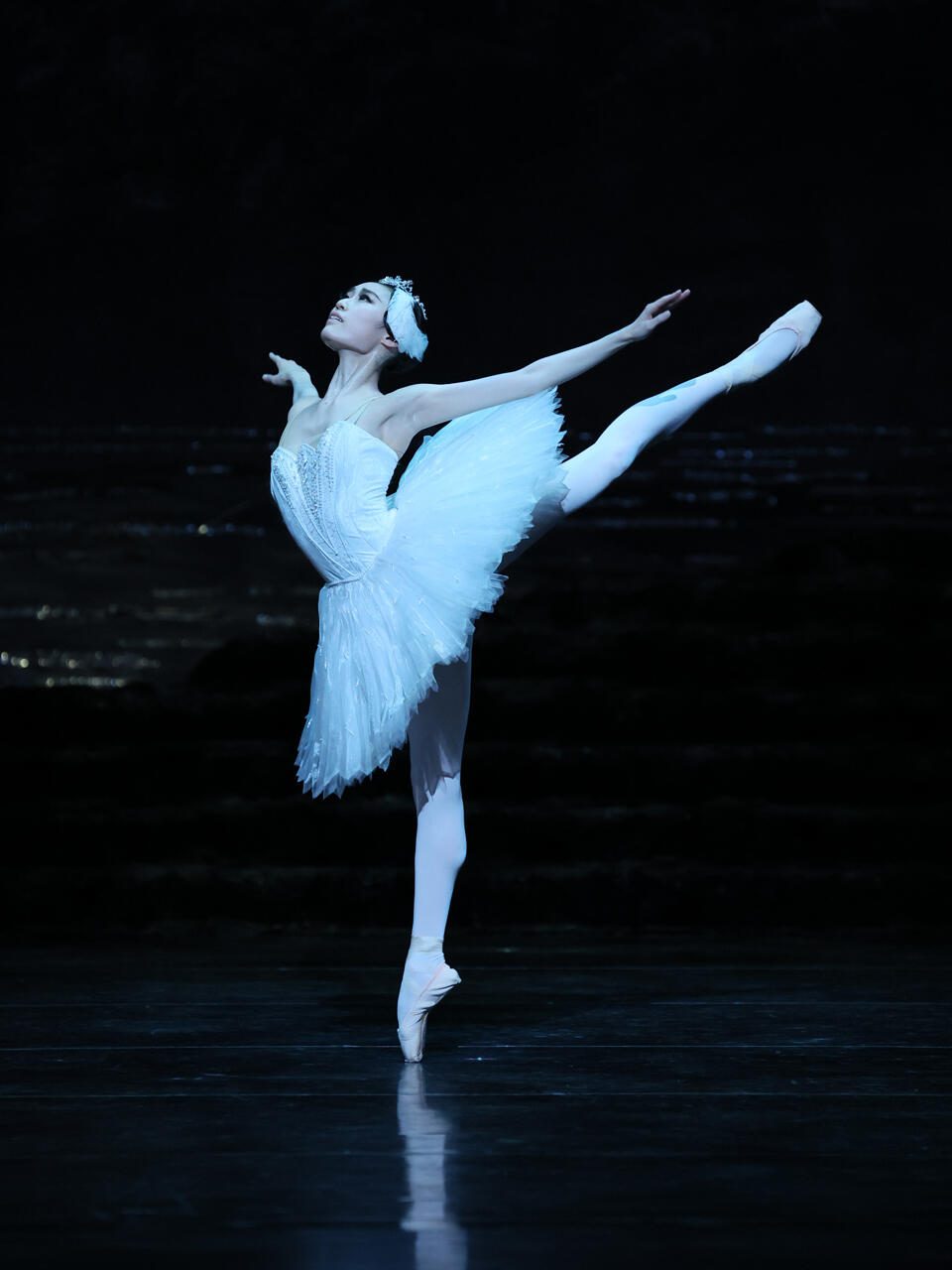
YOSHIDA Akari, Swan Lake (June 2023)
―One of the areas you have focused on as a director is the care of the dancers' bodies. Watching them over the years, I have noticed a change in the dancers' awareness.
When dancers are injured, they may need to rebuild their bodies or change the way they dance. Although this can be mentally challenging, it can be a valuable time for their future career. It is an opportunity for them to look at themselves and understand their bodies better. Although they may have an overwhelming desire to dance, many dancers have gone through this process and, looking back, often realise that it was a beneficial experience. It's important for them to put aside their immediate desire to dance and concentrate on what needs to be done.
Knowing your body is crucial. Dancers need to take proper care of their bodies, resting when needed and taking time for self-care. There are also times when they need to focus on strengthening themselves. It's important for them to prioritise taking time to care for themselves.
―Please tell us what you would like to focus on more in the future and what you expect from the dancers.
In the future, I'd like to continue to introduce new works that are unique to NNTT and keep the NBJ Choreographic Group active, although there will be no performances as part of the new season. In addition, I would like to increase opportunities for interaction with the public, such as open rehearsals. Of course, I also want to improve the working conditions for the dancers. I want our dancers to have a strong sense of professionalism when they perform. It makes me proud as a director when choreographers come from overseas and are impressed by the dedication and cooperation of our dancers. At the same time, I think it's important for them to concentrate on their own dancing, not to be influenced too much by other dancers around them and to hold on to their values and pride.
I am still a long way from my ultimate goal, and it will take a long time. There will be many challenges ahead, but I won't give up, I will keep going.
Interview by Moriyama Mika
❝Don Quixote❞
On Stage 20-29 October.
See here for more information.
You can find out more about 2023/2024 Season Ballet & Dance by clicking here.

